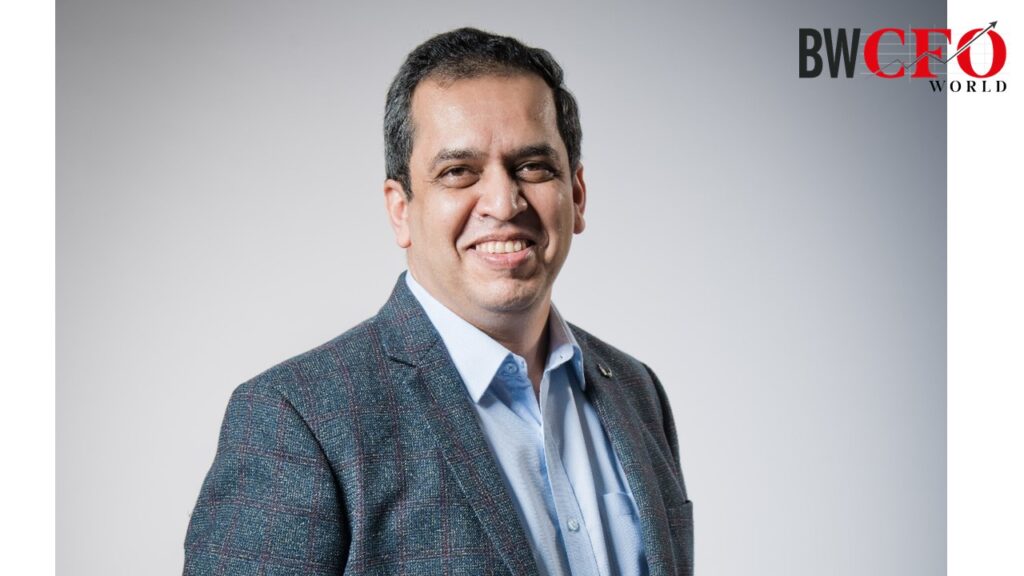“CFOs must become evangelists for AI and automation to drive greater efficiencies. This is possible only with a fair understanding of what the available tools and technologies can deliver”, explains Teredesai.
Vinit Teredesai took the fiscal reins at Mindtree in June 2020, amid the pandemic- at a time of surging corporate interest in digital transformation. Steering a company with an established digital heritage, Teredesai has led the company from its liquidity focussed position at the beginning of the pandemic to its recent acquisition of NxT Digital Business from Larsen and Toubro (L&T) for Rs 198 crores, allowing the company to take a big bite from the IoT and Industry 4.0-focussed future.
In his interview with BW CFO World, he adds how the CFO role has evolved beyond the conventional remit to include enterprise risk management, information security compliances, business transformation and sustainability initiatives. These alongside the existing duties of statutory compliance, financial analysis and planning, capital structuring, and financial performance optimization are the building blocks of the new CFO mandate.
Edited excerpts:
Starting your role at Mindtree amid the pandemic, what were the new practises you implemented that will earn a place in all future contingency plans going forward?
We sharpened our focus on building upon our born-digital heritage to enable them to maximize revenues and accelerate growth. We rolled out our 4x4x4 strategy focused on four industries, four service lines, and four geographies to drive superior growth, strengthen capabilities, and expand strategic partnerships. This strategy is resonating very well with our clients, as underscored by our healthy deal pipeline and broad-based growth across service lines, industry segments, and geographies.
We further strengthened the rigour and discipline required to drive profitability through accountability, be it boosting our capabilities to aggressively pursue white space opportunities or improving efficiencies to invest back into the business to make it future-ready. For instance, investments in intelligent vendor management tools have helped us redefine our interactions with collections and payments while gaining comprehensive real-time insights into cashflows. We also reenergized our focus on M&As to complement or augment our capabilities in strategic focus areas.
When it comes to future investments, what are the investment areas that your organization will go for without hesitation?
We will continue to invest in enhancing our domain expertise in chosen areas such as healthcare, cybersecurity, and Industry 4.0. We will also strengthen our consulting and technology capabilities across our service lines, and deepen and expand strategic relationships with clients, partners and hyperscalers. Developing domain-specific future-focused skills, enhancing local and near-shore delivery capabilities, especially in Europe, and dialling up our focused M&A strategy will be among the other areas of investment.
Going forward, as newer working models and right-shoring gains ground, the accent will shift from income and expense-based investments to return on investment (ROI).
What according to you are the new pillars of a sound financial strategy?
The five tenets of a sound post-pandemic financial strategy are:
-
- Real-time to drive quick informed business decisions based on insights, deviations in patterns, and current market trends.
- Conservative to ensure that cash flows are streamlined, and reserves are contingent.
- Being agile to cater to the evolving business demand, adapt & deliver using different revenue models, and ease the adoption of different policies and processes.
- Integrated view across the various moving parts of an organization to efficiently manage cash flows.
- Robust and secure with a view into the past, present and future, with an alert mechanism. In other words, a sound financial strategy must be descriptive, diagnostic, predictive, and prescriptive.
What are the top 3 skills for CFOs based on the lessons we’ve learnt from the pandemic?
Appreciation for AI and automation: When everything goes digital, finance cannot be left behind. CFOs must become evangelists for AI and automation to drive greater efficiencies. This is possible only with a fair understanding of what the available tools and technologies can deliver.
Remote delivery sensitivity: The varied and disparate nature of the workforce, technologies, clients, cross-functional collaboration, and working environments make soft skills as important as core skills. Understanding the most optimal communication mix for remote environments will be helpful.
Data Analytics: The C-suite will look up to the CFO to make sense of enormous amounts of insights to make real-time data-driven decisions. CFOs will need the skills to connect the dots across data points and be the data storyteller while being predictive and prescriptive in their solutions and investment pitches.
From a risk management perspective as the concern over cyber security looms, how can CFOs contribute to help mitigate the risk and stay ahead in a virtual world?
Successful cybersecurity goes beyond establishing robust policies and processes and charting out technology investments. It calls for continuous training, real-time analysis, agile decision-making capabilities, and competitive investments. Current-day CFOs and CIOs must collaborate to proactively avert evolving cyber threats.
To do so, CFOs can help CIOs benchmark their spending vis-à-vis the market in terms of investments across cybersecurity, technology, and talent, while also assessing the efficacy of the funds invested in mitigating risks. These benchmarks will equip the CFO organization to identify enterprise risks ahead of time and help them factor risk-return trade-offs, analyze allocated budgets against market standards, and understand probable areas of investments.
Following a profitable Q1, what does the manpower strategy look like for Mindtree in this fiscal?
In Q1 FY22 alone, Mindtree onboarded more than 3,400 employees, taking our headcount to more than 27,000. We are positive that given our robust pipeline and order book, and growing demand for our services, hiring is going to be substantially higher than in the past quarters, specifically in the areas of cloud, data, and security.
